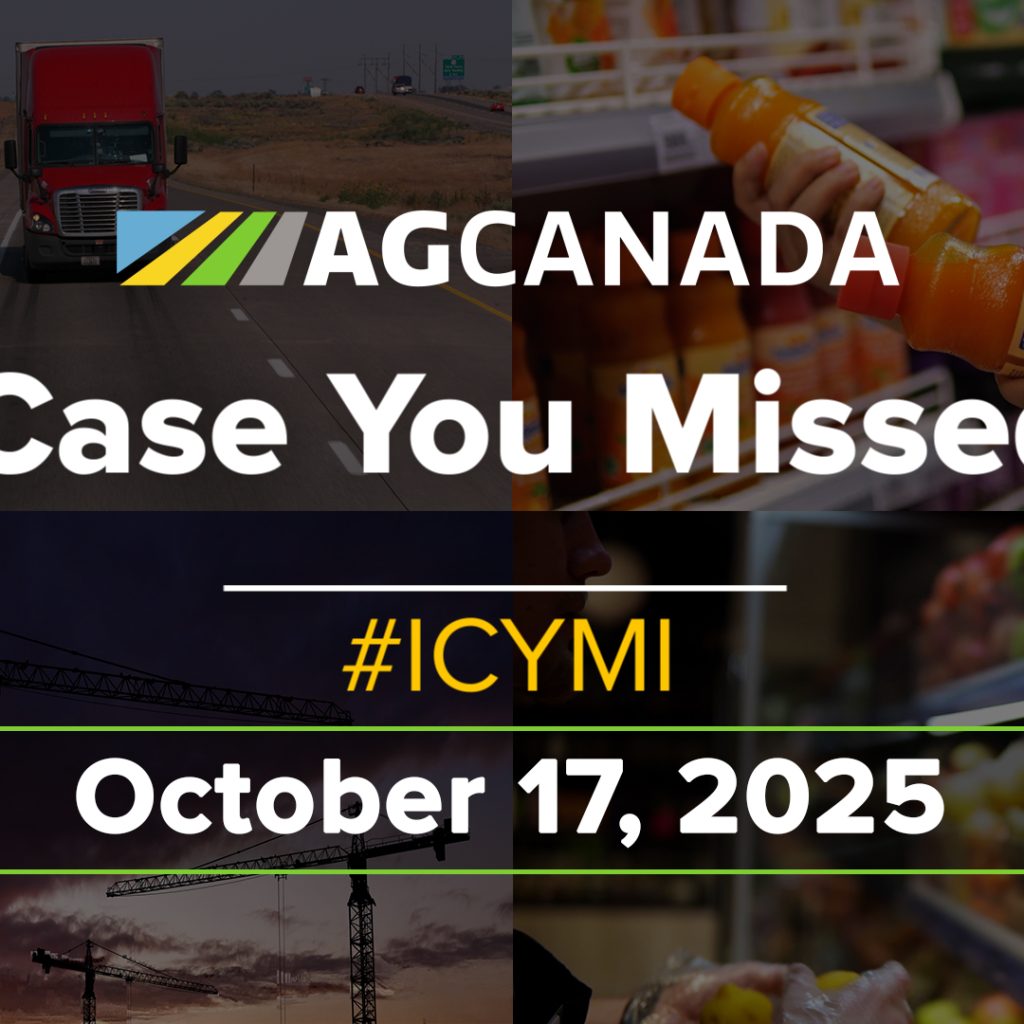A business-oriented research organization has joined a chorus calling for Canada to end its defence of high supply management tariffs in trade talks.
In a new report that is part of a process to launch a proposed national food strategy next year, the Conference Board of Canada also complains that Canada has higher import tariffs or quotas on meat and grain than do other exporting countries.
However, its main focus in the July 31 report written by Kristelle Audet is what she considers the damage that high chicken, dairy and egg tariffs have on other sectors that are denied more export trade access because of Canada’s protectionism.
Read Also

AgCanadaTV: Your Agriculture News Recap for Oct. 17, 2025
https://youtu.be/GevFlt7b2-U U.S. bill could keep out Canadian truck drivers A bill tabled in the U.S. house of representatives this month would keep…
“Canada’s maintenance of extremely high barriers to trade and commodities is holding back opportunities for trade in other less-protected agricultural commodities like pork and beef,” she wrote.
“Countries will not allow access to Canadian agricultural products as long as we maintain these barriers to trade.”
The conference board said its next report will examine how to reform supply management policies, which have regulated dairy, poultry and egg production for decades while allowing price-setting and high import barriers to keep the sector stable.
“Arguably, it is time for Canada to find other mechanisms to insure farmers’ incomes,” wrote Audet.
She said other countries, usually net food importers, maintain much higher barriers than Canada as they try to protect their small farm sectors.
The European Union and the United States also maintain protectionist policies.
However, she argued that Canada rates as a significant protectionist when compared with other major exporters such as China, Australia and New Zealand.
“Unless we are willing to put our supply management system on the table, free trade agreements with key Asian markets could be difficult to reach,” said the report.
“Protecting supply managed industries also limits the opportunities for Canadian food exporters in developed markets like the European Union.”
While the conference board bills itself as an independent research organization, it is financially supported in its agricultural work by a who’s who of Canadian food companies as well as Agriculture Canada and Farm Credit Canada.
The financial contributors have no say over the content of the final reports.














